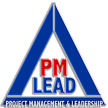Project Managers, General Advices
Principles to be adapted

In the dynamic and ever-evolving world of project management, success hinges on a delicate balance of technical expertise and effective leadership. As projects become increasingly complex and teams more diverse, the role of a project manager has never been more critical. In this article, we delve into a treasure trove of invaluable advice and insights, curated to empower project managers at every level of their career. Whether you're a seasoned pro or just starting on your project management journey, these pearls of wisdom will guide you through the challenges and triumphs of this demanding yet rewarding profession. So, fasten your seatbelt and get ready to embark on a journey of discovery as we uncover the essential advice that can elevate your project management game to new heights.
- Detailed Planning: Invest significant time and effort in the planning phase. Develop a comprehensive project plan that outlines tasks, resources, timeline, risks, and quality assurance measures.
- Effective Communication: Maintain open and consistent communication with all stakeholders, including team members, sponsors, and users. Regularly share updates, progress reports, and address concerns promptly.
- Stakeholder Engagement: Involve stakeholders early and frequently to gather requirements, manage expectations, and ensure their involvement throughout the project lifecycle.
- Strong Leadership: Lead by example and inspire your team to work collaboratively and efficiently. Provide clear direction, support, and motivation.
- Resource Management: Allocate resources effectively to ensure tasks are adequately staffed and that team members have the tools they need.
For Great ebooks for project managers and leaders
- Adaptability: Be prepared for changes and challenges. A flexible approach allows you to adjust the project plan as needed while still achieving objectives.
- Quality Focus: Prioritize quality throughout the project. Regularly test, review, and validate project deliverables to ensure they meet standards.
- Scope Control: Manage scope creep by clearly defining project boundaries and ensuring changes are evaluated and approved through a change management process.
- Team Empowerment: Empower your team members by delegating tasks, giving them ownership, and encouraging their input. This fosters a sense of responsibility and accountability.
- Problem Solving: Be proactive in addressing issues. Focus on finding solutions rather than placing blame when challenges arise.
- Time Management: Keep a close eye on the project timeline. Monitor progress, identify delays, and take corrective actions to stay on schedule.
- Documentation: Maintain thorough project documentation, including plans, meeting minutes, changes, and lessons learned. This facilitates transparency and aids in future projects.
- User-Centric Approach: Prioritize the needs and expectations of end-users. Ensure that the project's outcomes cater to their requirements.
- Continuous Learning: Stay up-to-date with project management best practices and industry trends. Learning from both successes and failures contributes to personal and project growth.
- Conflict Resolution: Address conflicts within the team or with stakeholders professionally and promptly. Seek to find common ground and maintain a positive working atmosphere.
- Celebrate Success: Acknowledge milestones, achievements, and successful project completion. Recognizing efforts boosts team morale and encourages dedication.
- Feedback Loop: Establish mechanisms for feedback from team members and stakeholders. Use this feedback to improve processes and make informed decisions.
- Closure and Reflection: After project completion, conduct a thorough project review. Document lessons learned, celebrate successes, and identify areas for improvement.
Remember that every project is unique, and adapting these principles to your project's specific context is crucial. By combining strong leadership, effective communication, meticulous planning, and continuous improvement, you can increase the likelihood of delivering successful projects consistently.
#projectmanagement #leadership. #pmlead
Don't forget to visit https://www.pmlead.net, the project managers and leaders ultimate hub
About the Creator
AMR MIQDADI
Program Manager, Project Manager, Coach, and Trainer with a track record of excellence spanning over a decade. Proven leadership in spearheading complex projects, fostering collaboration, and nurturing talent.
Enjoyed the story? Support the Creator.
Subscribe for free to receive all their stories in your feed. You could also pledge your support or give them a one-off tip, letting them know you appreciate their work.






Comments
There are no comments for this story
Be the first to respond and start the conversation.